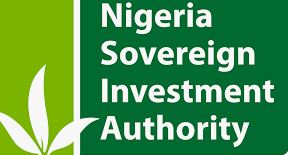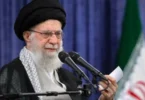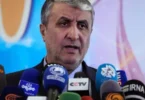
By Emma Ujah, Abuja Bureau Chief
The Nigeria Sovereign Investment Authority has grown its asset to $2.84 billion, up from the $1. billion it received in 2013.
The Managing Director, Mr. Aminu Umar-Sadiq, who disclosed this while briefing the press on the organisation’s 2024 performance, in Abuja, yesterday, said: “The NSIA has received a total of $1.82 bn in net Government Contributions since its inception. These funds have been efficiently utilized by NSIA, resulting in a Net Asset Value (NAV) of $2.84 bn as of December 2024.”
Naira devaluation has certainly played a role in the volume of the naira numbers as, according to the financial report, “net assets grew from N156 billion ($1 bn) in 2013 toN 4.354 tn (equiv. $2.84 bn) in 2024.”
NSIA share ownership stands at federal govt. (46.5%), state governments. (34.8%), local governments. (18.2%) & FCT (0.5%) and has a 3-fold mandate which it delivers through three separate and ring-fenced core funds, namely Future Generations Fund, Stabilisation Fund and the Nigeria Infrastructure Fund.
Umar-Sadiq stated further: “For over a decade, NSIA has successfully executed more than 150 investments in a wide range of projects across the African continent, demonstrating its commitment to driving economic development throughout the region.”
He described the last 12 years as a period “of consistent positive returns with a record efficient Balance Sheet management of ensuring optimal asset allocation and utilization; retaining a substantial portion of the balance sheet in foreign currency; diversifying the portfolio to minimize risk; maintaining a defensive investment strategy; and focusing on long-term growth.”
“The Authority’s outstanding financial performance in 2024 reflects the strength of our strategic vision, disciplined execution and unwavering commitment to sustainable socio-economic advancement.
‘’By leveraging innovation, strategic partnerships and sound risk management, we have not only delivered strong returns but also created value for our stakeholders.
“As we move forward, we remain focused on driving economic transformation, expanding opportunities, scaling transformative impact and ensuring long-term prosperity for current and future generations of Nigerians,’’ he said.
He added that the company was focusing on sustainable earning by improving cash and liquidity management; expanding on third-party mandates; implementing operational frameworks for infrastructure platforms; strategising for liquidity events within the existing portfolio; and strengthening earnings’ resilience by diversifying revenue sources.
Umar-Sadiq said the NSIA had committed over $500 million to domestic infrastructure in sectors, such as robust infrastructure investment portfolio across key sectors as agriculture, healthcare and power.
He added that the company has invested in over 50% locally owned and managed private equity funds, in addition to developing/co-developing over 10 institutions and platforms to improve the financial market ecosystem of the nation.
The NSIA boss revealed that the agency, through its operations and investments, has generated positive social and economic nationwide impact and contributed towards the attainment of key SDGs for Nigeria.
According to him the investments included $7.5 billion in the agriculture sector; $1.8 billion in motorways; $695 million in financial market; $274 million in gas industrialisation; $42 million in healthcare; and $22.5 million in power.
NSIA’s healthcare investments, he said, had positively affected three hospital projects, with over 282,100 patients served and 150,000 chemotherapy sessions.
Mr. Umar-Sadiq said several projects were being undertaking under the Presidential Infrastructure Development Fund established by the Office of the President in 2018 to expedite the development of vital, world-class infrastructure projects within Nigeria and act as a catalyst for economic growth.
The projects include the Lagos-Ibadan Expressway, a 127.6km-long expressway and the major connection route between the northern, southern and eastern parts of Nigeria; the
Second Niger Bridge (“2NB”), which entails the construction of a 1.6km bridge over the River Niger and two 10.3km approach roads linking Anambra to Delta States, as well as two secondary bridges of 21.7km each, & an interchange; and Abuja-Kano expressway, which initially involved the rehabilitation of 92.5km across three sections.
This was expanded to full reconstruction of the 375.9km dual carriageway by the former President in June 2020.
The post NSIA grows asset to $2.8billion appeared first on Vanguard News.








